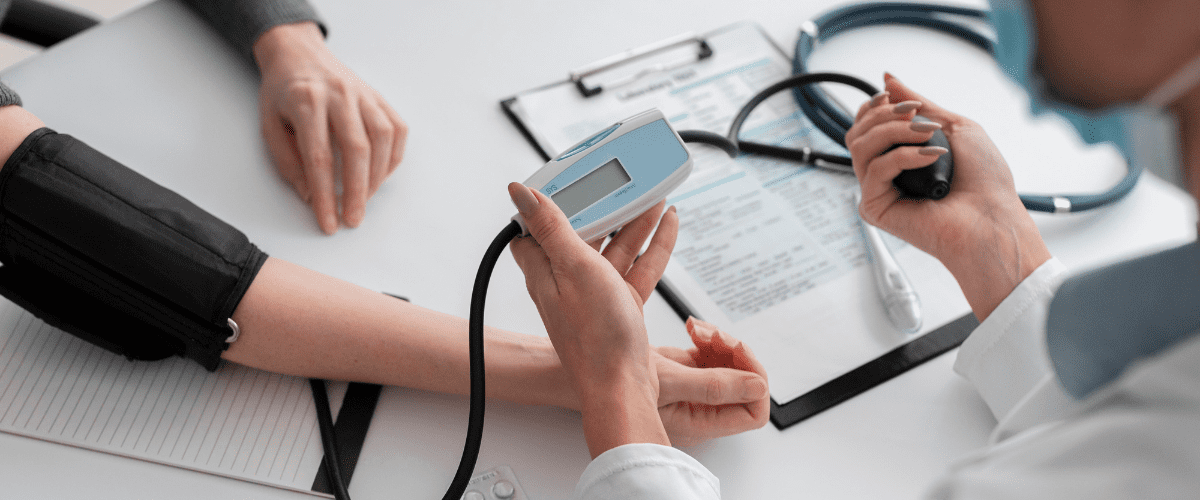
22 Apr 10 Women’s Health Issues to Know For Better Well-Being
10 Women’s Health Issues to Know For Better Well-Being
By Island Hospital | Apr 22, 2024 12:00:00 PM
Did you know gender affects health issues? Researchers say this could be due to biological, social, and behavioral factors.
At every phase of life, it’s crucial for women to stay informed about their current health status, and take proactive steps for wellness and vitality.
In conjunction with Mother’s Day, let’s spotlight women’s well-being by looking at 10 common women’s health issues.
How does gender affect women’s health?
There are certain medical conditions which affect men and women differently. For instance, while diabetes is more prevalent in men, women often face more severe complications and a higher risk of death.
Besides, symptoms of diseases may show up differently in men and women, leading to women being underdiagnosed for medical conditions such as heart attacks.
Studies also reveal that women have been diagnosed later in life compared to men. Researchers point to possible reasons such as genetics, the environment, biases in the healthcare system, or a combination of these factors.
This highlights the importance of diagnosing and treating women’s health as its own specialty, rather than generalizing all health conditions.
Common medical conditions faced by women include heart disease, breast cancer, urinary tract diseases, and more. We will discuss this in more detail in the following sections.
1. Heart disease
Heart disease is one of the main causes of death among women in Malaysia. Common types of heart disease among women are coronary artery disease, arrhythmia, and heart failure.
The symptoms of heart disease vary among women. Some show no symptoms, while others experience the following:
- Angina (chest discomfort or pain)
- Back, neck or jaw pain or tightness
- Nausea
- Shortness of breath
- Prolonged or excessive tiredness
Seek medical attention or call 999 immediately if you see any of these signs.
Depending on the type of heart disease, this condition can be treated with medications such as anticoagulants, antiplatelet therapies, and beta-blockers.
Surgery is also an effective treatment. Common procedures include coronary artery bypass surgery, valve replacement, and device implantation.
Consult your doctor to find the best option for you.
2. Stroke
Similar to heart disease, stroke ranks as one of the leading causes of death among women in Malaysia. A stroke happens when blood flow to a part of the brain is blocked or when there’s bleeding in the brain.
Strokes are life-threatening conditions which require immediate medical attention. They can cause paralysis, speech problems, vision problems, changes in behavior, memory loss, and death.
This largely depends on the location and extent of brain damage, and timeliness of treatment.
Identify a stroke with the FAST acronym:
- Face weakness: Can they smile? Or does one side of their face droop?
- Arm weakness: Can they raise both arms? Does one arm drift downward?
- Speech problems: How clear is their speech? Is it slurred or strange?
- Time: Call 999 immediately if you see any of these signs.
Patients can go through rehabilitation with therapists who specialize in speech therapy, physical therapy, or occupational therapy. These therapies target: speech, movement and coordination, and enhancing daily activities, respectively.
The recovery for stroke varies among patients. While some experience full recoveries, others have permanent disabilities.
3. Diabetes
Diabetes is the result of high levels of blood sugar in your body. This condition can happen when your body does not make insulin or use insulin correctly,
Although women have a lower risk of diabetes compared to men, they are at risk for more serious complications such as heart disease, blindness, kidney disease, and depression.
General symptoms of diabetes include:
- Unusual tiredness
- Extreme thirst
- Blurry vision
- Urinating more frequently
- Feeling hungrier than usual
- Unexplained weight loss
- Slow-healing sores
- Dry and itchy skin
- Tingling sensations in hands or feet
The symptoms of diabetes in women are:
- Candida infections
- Urinary tract infections (UTIs)
- Vaginal dryness
- Polycystic ovary syndrome (PCOS)
Insulin and other medications can be used to manage blood sugar levels. However, this depends on the type of diabetes and your overall health condition. Consult your doctor to find the best option for you.
Women with diabetes can have a safe and healthy pregnancy. Talk with your healthcare provider before getting pregnant. They offer valuable insight to keep your baby healthy and manage your diabetes during pregnancy.
4. Maternal health issues
Although there have been great medical advancements in care for pregnancy and childbirth, maternal health issues are still a critical issue today.
Maternal health issues are complications that can arise throughout pregnancy. Here are common complications that can happen before, during, or after pregnancy:
Condition | Details |
|---|---|
| Anemia | |
| Anxiety | |
| Depression | |
| Diabetes | |
| Heart conditions | |
| High blood pressure | |
| Hyperemesis Gravidarum | |
| Infections | |
| Weight |
Consult your doctor and schedule regular check-ups for early diagnosis and management of these conditions.
At Island Hospital, our Obstetrics and Gynaecology specialists offer complete gynecology care for women of all ages. We provide fertility treatment, prenatal and postnatal care, and pregnancy management services. Contact us today to get started.
5. Urinary tract infections
Urinary tract infections (UTIs) are the result of bacteria entering the urinary tract, multiplying and leading to inflammation and discomfort. You have a higher risk of this infection if you have conditions such as kidney stones, weak immune system, or a urinary catheter.
UTIs are more common in women. This is because women have a shorter urethra compared to men. This shortens the distance that bacteria must travel to reach the bladder, thus leading to infections.
Here are a few symptoms of a UTI:
- A burning sensation when peeing.
- A frequent urge to pee, but not much comes out when you do.
- Cloudy, dark, bloody, or foul-smelling pee.
- Pressure in your lower abdomen / pelvic area.
- Fatigue, shakiness, or confusion (older women).
- Wetting the bed (children and older adults).
UTIs can be treated with antibiotics. Once treatment is started, the symptoms of UTIs generally last only 3 to 5 days.
Did you know health screening tests assist early detection of common women’s health issues? Learn more in our article on essential health screening tests for women.
6. Sexual health
Sexual health encompasses various aspects, including reproductive health, contraception, sexually transmitted infections (STIs), sexual function, and relationships.
Women should practice safe sex habits including:
- Using birth control.
- Using condoms.
- Getting regular screenings for STIs.
- Communicating with your partner (e.g., discuss birth control, STI protection, STI status, emotional aspects)
- Staying consistent with OBGYN visits.
Treatments for STIs include medicines such as antibiotics, antivirals, and antifungals, depending on the specific infection. It’s important to seek medical advice immediately if you suspect you have an STI.
7. Breast cancer
Breast cancer is the abnormal growth of cells in the breast tissue, usually forming a lump or mass. It is the most common cancer in women worldwide.
Women should take note of their family history of breast cancer and discuss screening guidelines with their healthcare providers.
Here are a few symptoms of breast cancer:
- A lump forming in the breast or underarm area.
- Irritation or dimpling of breast skin.
- Thickening or swelling of part of the breast.
- Nipple area has redness or flaky skin.
- Pulling in of the nipple or pain in the nipple area.
- Nipple discharge other than breast milk.
- Unusual change in the size or shape of the breast.
- Pain in any area of the breast.
Schedule an appointment with your healthcare provider if you notice any of these symptoms. However, do keep in mind that these symptoms could be caused by other factors.
Breast cancer can be diagnosed through imaging tests such as mammograms, breast ultrasounds or breast MRIs. If these tests show a possible sign of cancer, a biopsy is done to confirm the diagnosis.
Treatment for breast cancer includes options such as surgery, chemotherapy, radiation therapy, targeted therapy, and hormone therapy. The selection of treatment depends on the stage and type of cancer.
Consult your doctor to find the best treatment option for you.
8. Osteoporosis
Osteoporosis is a condition characterized by weakened bones. This increases the risk of fractures, particularly in the hip, spine, and wrist.
Women are at higher risk of osteoporosis, especially after menopause as they experience decreased estrogen levels.
Osteoporosis generally does not have symptoms, Therefore, you may not know you have osteoporosis until a bone is broken.
The fractures may occur due to minor falls or normal stresses (e.g., bending and lifting) – where healthy bones would normally not break.
Other factors which may increase your risk are age, body size, race, family history, diet, and changes to hormones (low levels of estrogen in women).
Diagnosis for osteoporosis is done through bone density testing – the most common test being a DEXA scan.
Treatment for this condition includes medicines such as bisphosphonates, calcium supplements, vitamin D supplements, and hormone replacement therapy.
Consult your doctor to find the best treatment option for you.
9. Thyroid diseases
Thyroid diseases, such as hypothyroidism and hyperthyroidism, occur when your thyroid makes an excess or inadequate amount of the hormones responsible for regulating your body’s energy use.
These conditions can affect metabolism, energy levels, mood, and overall health.
Thyroid diseases are more common in women. They can cause difficulties with menstruation and getting pregnant, and during pregnancy.
Some women are at higher risk of this disease. For example, women who previously experienced thyroid issues, underwent thyroid surgery or radiotherapy, or had certain medical conditions (e.g., goiter, anemia, type 1 diabetes).
Here are the symptoms of thyroid diseases:
- Fatigue
- Weakness
- Intolerance to cold
- Constipation
- Weight gain
- Brittle nails
- Muscle cramps
- Depression
- Difficulty concentrating
- Irregularities in menstruation
- Infertility
Thyroid diseases can be diagnosed through three blood tests: a blood test measuring thyroid-stimulating hormone (TSH), a blood test measuring the T4 hormone, and an anti-thyroid microsomal antibody test.
Management usually involves medication such as levothyroxine and liothyronine. It also requires lifestyle modifications and regular monitoring by a healthcare provider.
10. Autoimmune diseases
Autoimmune diseases, such as SLE and Rheumatoid Arthritis, occur when the immune system mistakenly attacks its own cells.
Many autoimmune diseases are more prevalent in women. Studies have cited sex hormones, the X chromosome, and environmental factors as possible reasons.
Diagnosis for these diseases can be done by sharing your symptoms and family health history with your healthcare provider. Consider seeing a specialist who has experience in treating your main or most noticeable symptom.
Treatment usually involves using medication and making lifestyle modifications to manage symptoms, reduce inflammation, and suppress the immune response.
Regular medical monitoring and adherence to treatment plans are essential for managing autoimmune diseases effectively.
What are ways for women to keep healthy?
Women’s health issues can be caused by a variety of biological or lifestyle factors. Although we cannot completely avoid such diseases, we can still manage and significantly reduce the risks.
So here are are 8 ways to care for your well-being:
1. Schedule regular health screenings.
2. Keep track of your menstrual cycle (note changes or irregularities).
3. Avoid bad habits such as smoking and drinking alcohol.
4. Practice good sleep hygiene (e.g., enough rest, sleeping early).
5. Stay physically active.
6. Eat a balanced and healthy diet.
7. Reduce and manage your stress levels.
Schedule an Appointment with Island Hospital
We hope this article provided valuable insights on common women’s health issues. To reduce these risks and promote early intervention, prioritize healthy daily habits and regular check-ups.
Island Hospitals offers a comprehensive range of health screening tests to suit every woman’s unique health requirements. Our team of healthcare professionals are ready to assist you every step of the way.
If you’re searching for an all-inclusive experience for you and your loved ones, we offer a Complete Screening Package for Women. It contains all the essentials: cancer marker tests, radiological screening, cardiovascular tests, and more.
FAQ
Why are women more prone to health issues?
Women are more prone to health issues due to hormonal fluctuations, reproductive health concerns, genetic factors, and socio-economic disparities.
What is the biggest health threat to women?
The biggest health threats to women include cardiovascular diseases, cancer (especially breast and cervical cancer), reproductive health issues, and osteoporosis.
At what age do women start having health problems?
Health problems for women can start at any age, but conditions like menstrual disorders or fertility problems may arise in younger years, while menopausal symptoms and age-related conditions such as heart diseases become more common with age.
What are signs of female problems?
Signs of female health problems vary according to the type of disease and the individual’s health condition. Some common signs may include abnormal vaginal bleeding, pelvic pain, breast changes, urinary issues, mood disturbances, menstrual changes, and sexual function changes.







